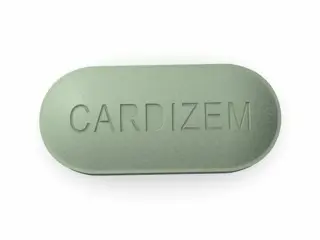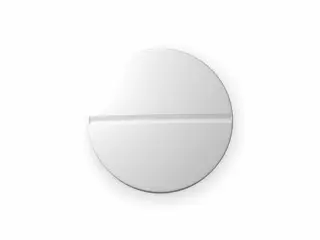Cardiovascular
Find a wide selection of cardiovascular medications and supplements designed to support heart health, improve circulation, and manage blood pressure. Shop trusted brands for effective treatment and prevention of cardiovascular conditions.
The cardiovascular category includes medications used to treat heart and blood vessel conditions. These drugs help control blood pressure, heart rhythm, cholesterol, and prevent blood clots. They are vital in managing diseases like hypertension, arrhythmia, heart failure, and stroke prevention.
Altace (ramipril) is an ACE inhibitor. It works by relaxing blood vessels. This lowers blood pressure and improves blood flow. Altace helps reduce the risk of heart attack and stroke in high-risk patients. It is often prescribed for hypertension and heart failure. Side effects may include cough, dizziness, and high potassium levels.
Cardarone and Cordarone (amiodarone) are antiarrhythmic drugs. They treat irregular heartbeats such as atrial fibrillation and ventricular tachycardia. These medications stabilize the heart rhythm. Amiodarone has a long half-life and requires monitoring. Users should watch for lung toxicity, thyroid issues, and liver problems.
Cardizem (diltiazem) and Cartia XT (extended-release diltiazem) are calcium channel blockers. They relax blood vessels and reduce heart rate. These drugs treat hypertension, angina, and some types of arrhythmia. They can cause swelling, dizziness, or slow heartbeat. The extended-release form allows once-daily dosing, improving convenience.
Coumadin (warfarin) is an anticoagulant. It prevents blood clots by thinning the blood. Useful after heart valve replacement or in atrial fibrillation. Patients need regular blood tests to monitor clotting time (INR). Foods and other drugs may affect its action, so careful management is essential. Side effects can include bleeding or bruising.
Lanoxin (digoxin) is used for heart failure and atrial fibrillation. It strengthens heart contractions and controls heart rate. Digoxin has a narrow therapeutic range, so blood levels need close monitoring. Symptoms of toxicity include nausea, vision changes, and irregular heartbeat.
Lisinopril is another ACE inhibitor widely used for hypertension and heart failure. It lowers blood pressure and protects kidneys. Side effects are similar to Altace, such as cough and hyperkalemia. It is often combined with other medications for better blood pressure control.
Micardis (telmisartan) is an angiotensin II receptor blocker (ARB). It relaxes blood vessels and lowers blood pressure. Micardis is used alone or with other drugs to manage hypertension. It provides kidney protection, especially in diabetic patients. It may also cause dizziness or elevated potassium.
Nimotop (nimodipine) is a calcium channel blocker. It is specialized for preventing brain damage from bleeding in the brain (subarachnoid hemorrhage). It improves blood flow in the brain and reduces complications. Exact dosing and timing are crucial to its effect.
Plavix (clopidogrel) is an antiplatelet drug. It prevents platelets from clumping together, reducing the risk of heart attack and stroke. Plavix is often prescribed after stents or in people with peripheral artery disease. Bleeding risk increases, so caution is needed with other blood thinners.
Samsca (tolvaptan) treats hyponatremia (low sodium levels). It works by blocking vasopressin, a hormone that controls water balance. Samsca is used in conditions like heart failure and liver disease where water retention occurs. Side effects include thirst, increased urination, and potential liver toxicity.
In summary, cardiovascular medications cover a broad spectrum of treatments. They manage blood pressure, rhythm, clotting, and heart strength. Proper use and monitoring are essential to maximize benefits and reduce risks. Patients should always follow medical advice closely. Regular checkups and tests help adjust therapy safely. These medicines have turned many serious heart problems into manageable conditions.











